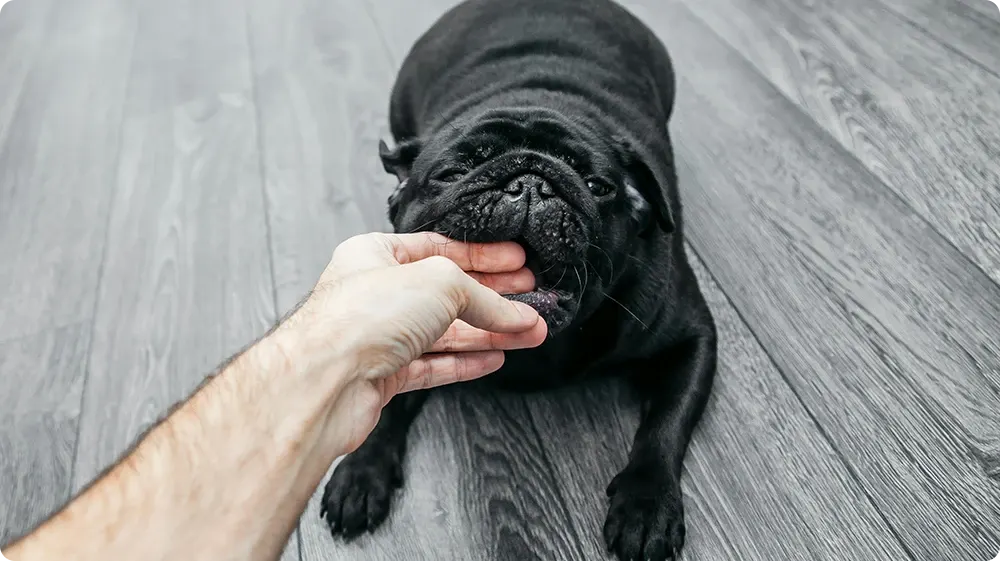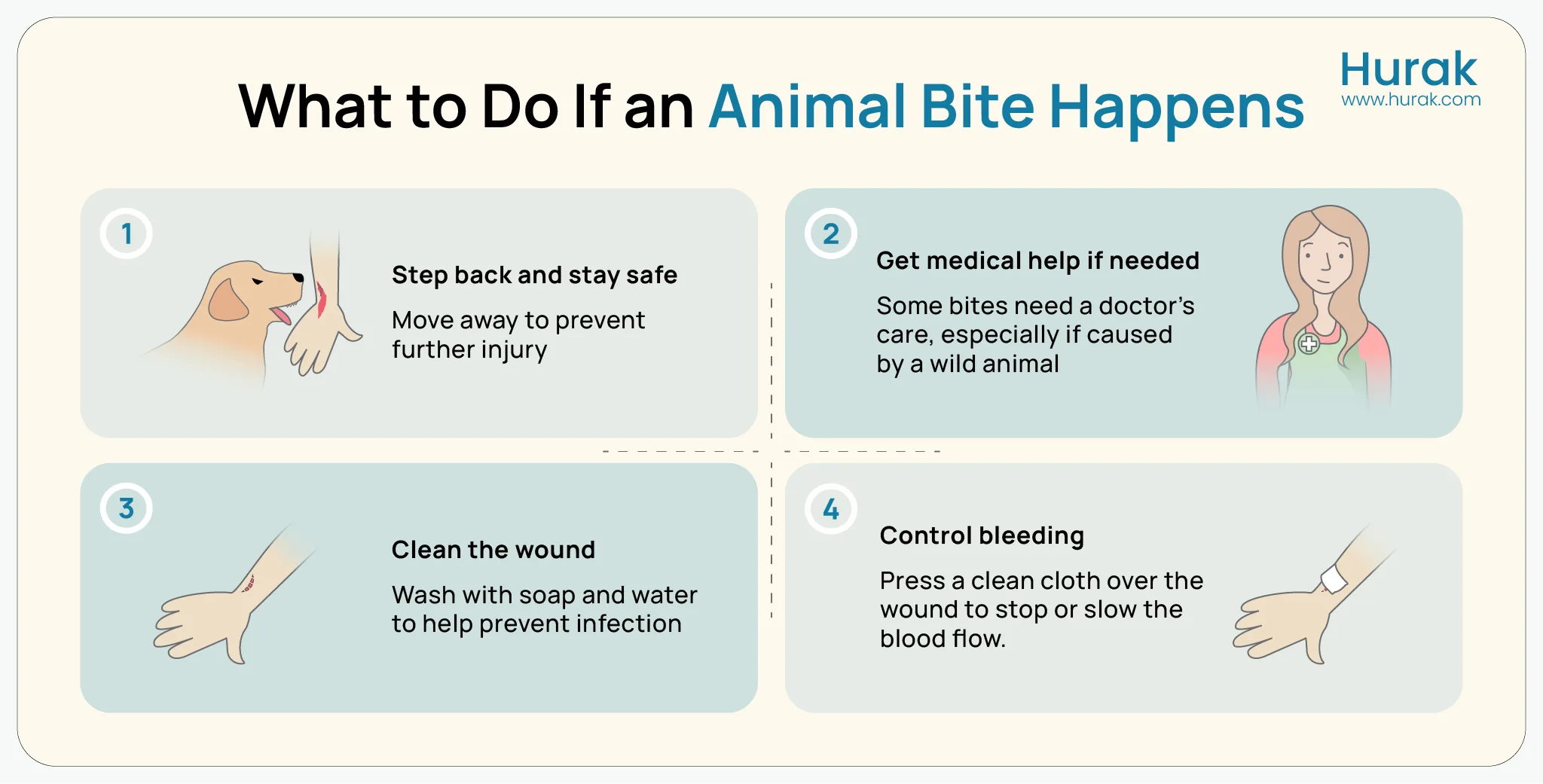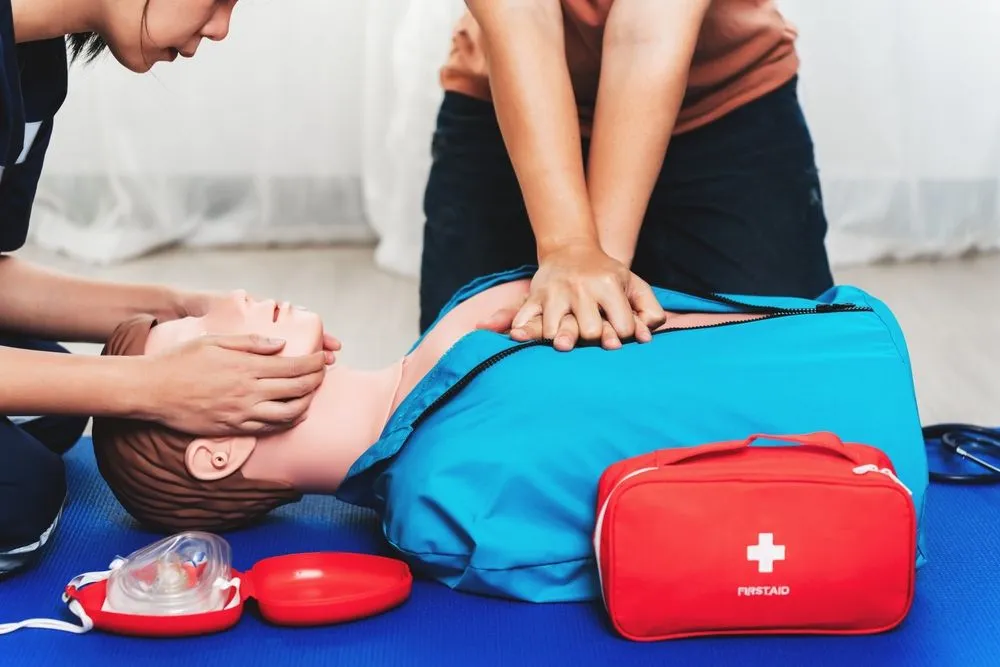Animal bites, ranging from minor scratches to severe wounds, are common injuries. Whether caused by pets or wild animals, quick and proper first aid treatment is crucial to prevent infections and complications.

Why Immediate First Aid for Animal Bites is Important
Animal bites can range from mild to severe, and if not treated promptly, they may lead to infections, particularly in the case of dog or rodent bites. In rare situations, this can result in complications like hydrophobia. Acting quickly with the right first aid response can significantly reduce the risk of infection. Having the appropriate skills through an Emergency First Aid at Work course can make a real difference in managing such incidents until professional help is available.
Animal Bite Symptoms You Shouldn’t Ignore
- Puncture wounds, cuts or scratches.
- Bleeding that may be heavy or persistent.
- Swelling, redness, or warmth around the bite.
- Severe pain at the site.
- Pus or drainage.
- Fever or flu-like symptoms.
Immediate Steps to Treat an Animal Bite
If you or someone else is bitten, follow the quick steps:
- Clean the wound: Rinse thoroughly with soap and running water to remove bacteria.
- Stop the bleeding: Apply gentle pressure with a clean cloth or bandage.
- Cover the bite: Use a sterile dressing to protect the area.
- Seek medical help: Get checked, especially if the wound is deep, swollen, or shows signs of infection.
Quick Guide: Steps to Take After an Animal Bite

Different Types of Animal Bites
Animal bites, whether from pets or wild animals, can vary in severity and pose different risks. It’s crucial to understand the type of bite and how to respond appropriately to avoid complications like infections or diseases. In this guide, we’ll explore the different types of animal bites, their associated risks, and the first aid steps needed to treat them effectively. For more on managing bleeding, check out our First Aid for Severe Bleeding – Treatment and Tips, and learn how to dress a wound for effective care appropriately.
Types | Key factors | First Aid Tips |
Dog bites | Common and often severe due to the strength of a dog’s jaws. | Clean the wound, apply pressure, and seek medical attention. |
Cat bites | More likely to cause infections. | Clean immediately, apply antiseptic and seek and monitor for infection. |
Rodent bites | Usually small, associated with rabies. | Clean thoroughly, and seek medical advice for rabies prevention. |
Wild animal bites | High risk of rabies and other infections. | Seek emergency medical help immediately. |
Simple Ways to Prevent Animal Bites
By following a few practical habits and safety tips, you can significantly reduce the risk of getting bitten, whether you’re at home, outdoors, or at work.
- Stay calm around animals: Sudden moves can scare them and trigger a bite.
- Don’t pet animals you don’t know: Even cute pets can react unpredictably if they feel threatened.
- Teach kids to be gentle and respectful with animals: It’s one of the best ways to keep them safe.
- Keep your pets healthy and vaccinated: A well-cared-for pet is less likely to bite.
- Wear gloves when handling animals at work: It’s a simple step that can protect you from scratches and bites.
Conclusion
Animal bites can pose serious risks, potentially leading to infections or more severe complications. Understanding proper first aid techniques and acting quickly can significantly reduce these risks and help prevent further harm. Whether it’s a pet or a wild animal, knowing what to do in the event of a bite can make all the difference. By gaining the right skills through first aid courses, you can be better prepared to handle such emergencies safely and effectively.
Frequently Asked Questions
What antibiotics should I take for animal bites?
Doctors commonly use antibiotics for animal bites to prevent or treat infection. Always consult a healthcare professional for the correct antibiotic and dosage.
Are tetanus and animal bites the same thing?
No, tetanus and animal bites are not the same thing. Tetanus is a severe infection caused by a specific bacterium, often entering the body through deep wounds from animal bites. Animal bites are injuries which increase the risk of tetanus if the wound is deep or contaminated.
What are the worst animal bites?
The most dangerous animal bites include dog bites, cat bites, and wild animal bites, especially from bats, raccoons, and snakes.
Explore Our Other First Aid Courses
At Hurak, we offer a comprehensive range of first aid courses tailored to various needs and environments. Whether you’re looking to expand your skills or renew your certification, we have options to suit you:
- First Aid at Work (3 Days): A comprehensive course for high-risk environments, including construction and healthcare.
- Paediatric First Aid (2 Days): Focused on emergency situations involving infants and children.
- Mental Health First Aid: Equips you to support individuals experiencing mental health issues.
- First Aid at Work Requalification (FAWR): A two-day refresher course for those needing to renew their First Aid at Work certificate.





